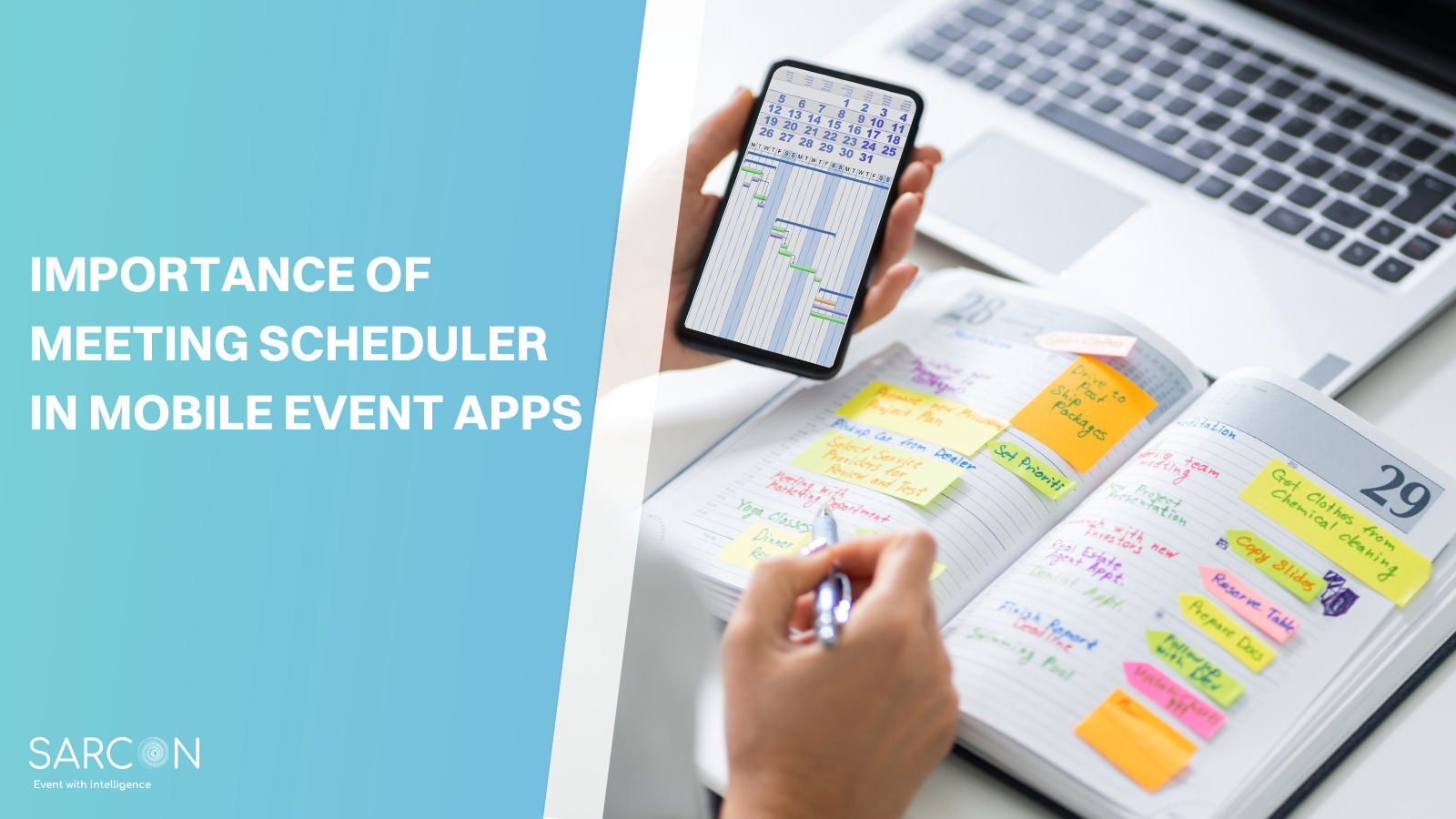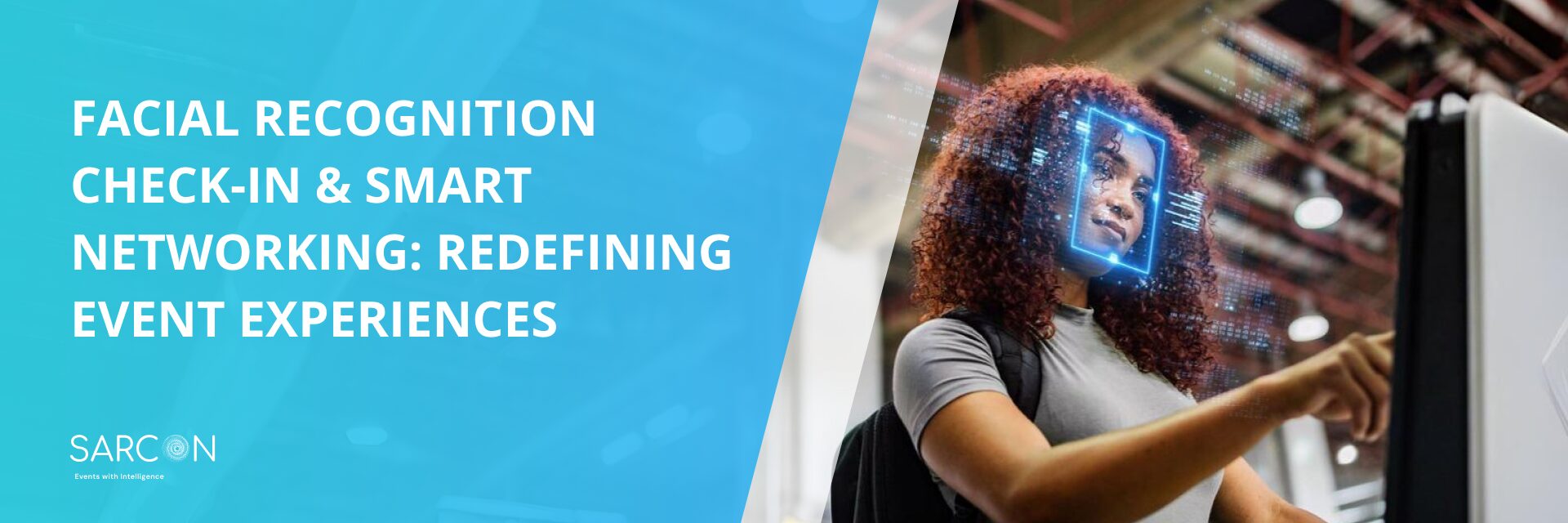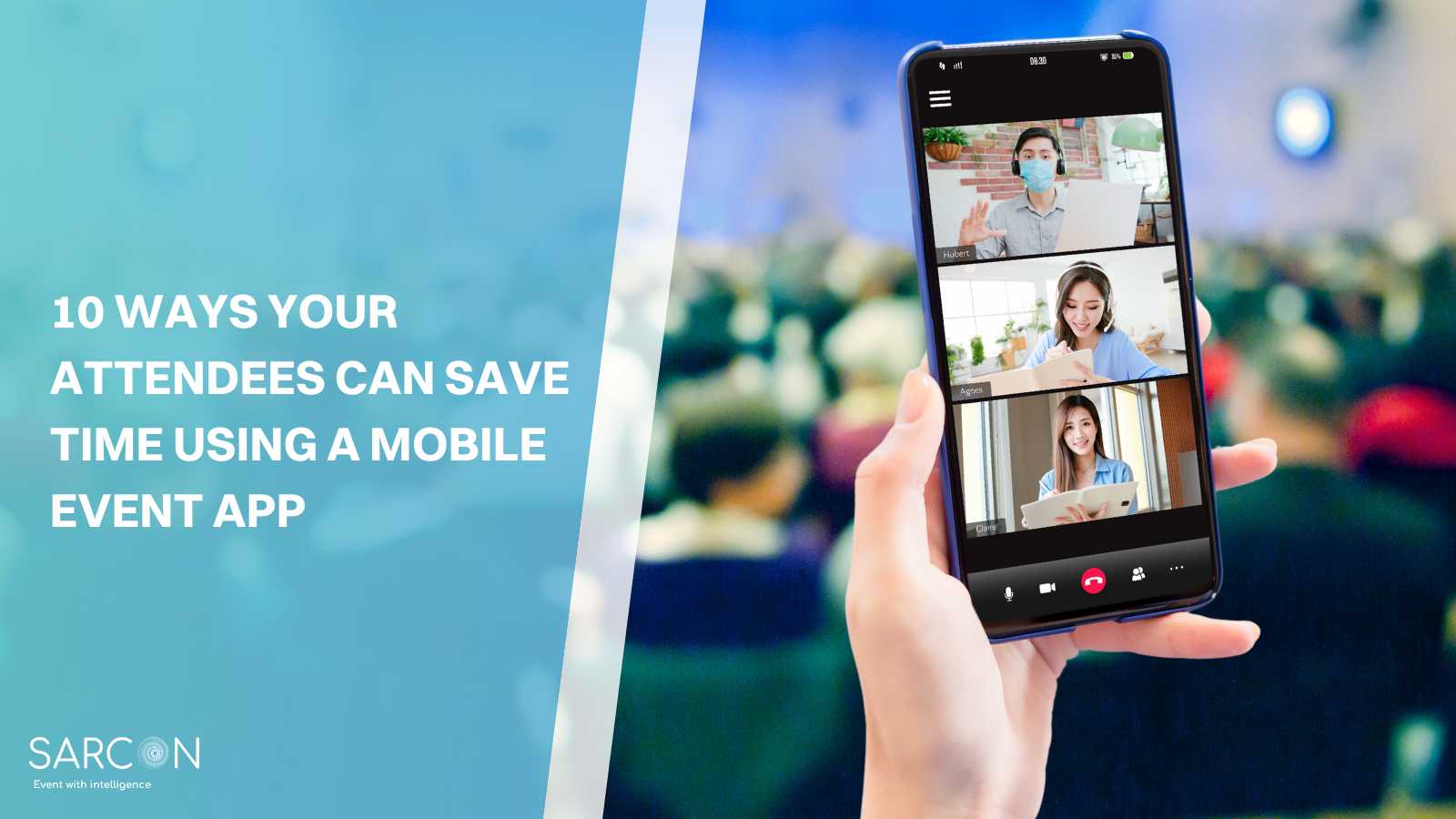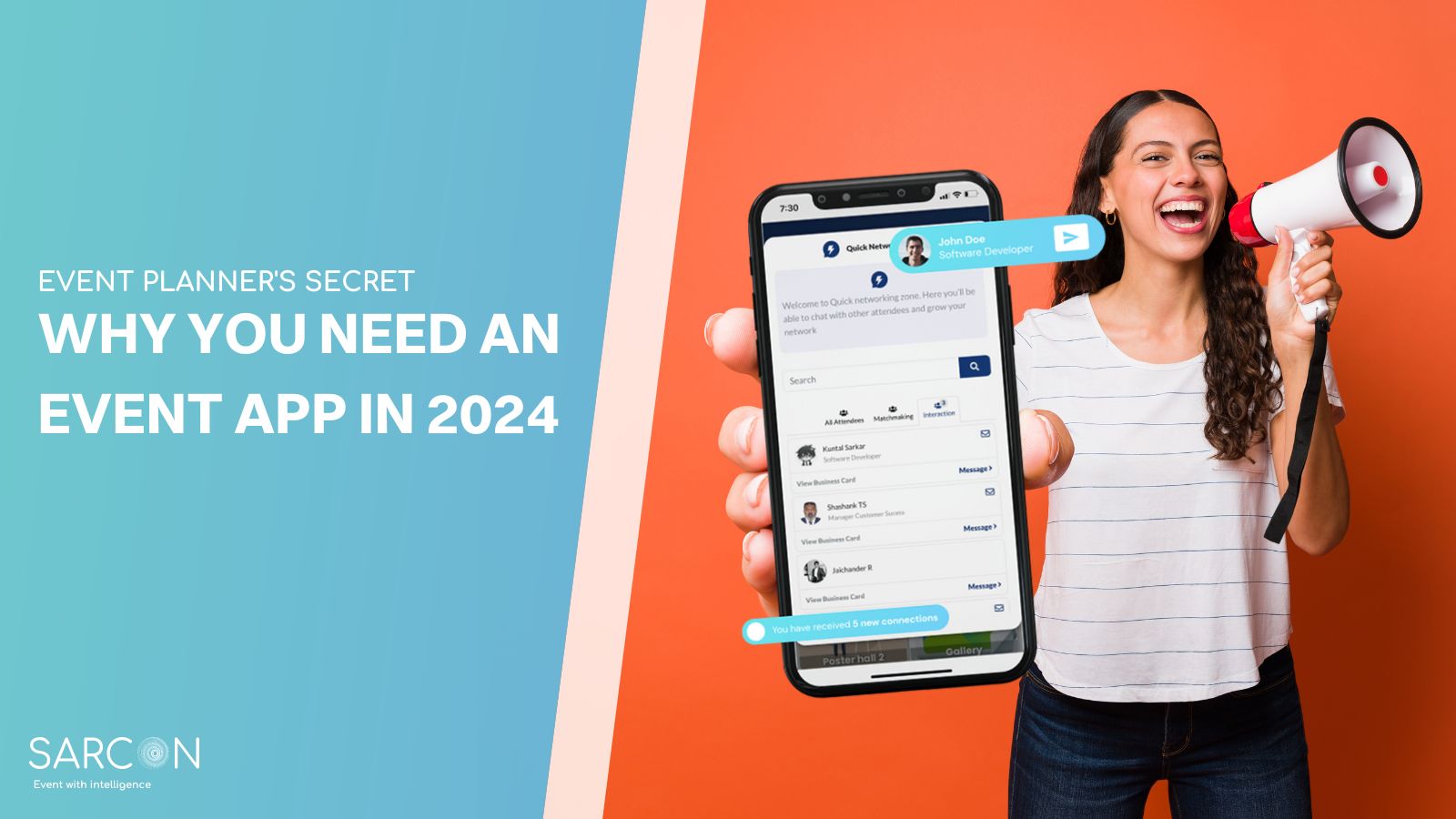In a world where mobile apps have seamlessly integrated into our daily routines, it’s no surprise that they have also revolutionised the way companies engage in event marketing. Whether it’s a grand conference or an intimate business meeting, the key to a triumphant gathering lies in the perfect amalgamation of networking, forging new business opportunities, and acquiring fresh knowledge. And, above all, it must be a hassle-free experience for all involved. The solution to achieving this event nirvana? A mobile event app.
Today, we delve into the significance of a meeting scheduler within your event app. With the power to alleviate a multitude of tasks and bolster your business endeavors, a meeting app has evolved from being a mere convenience to an indispensable tool for forward-thinking companies.
The Significance of Mobile Event Apps
Before we dive into the role of meeting schedulers, it’s important to understand the significance of mobile event apps themselves. These applications have transformed the landscape of event management by bringing all the necessary information and functionalities right to the fingertips of event organisers and attendees. From event schedules, speaker information, and maps to interactive features like live polling and feedback submission, mobile event apps offer an all-encompassing solution to enhance the attendee experience.
The Role of Meeting Schedulers
Meeting schedulers, a key feature within event apps, play a pivotal role in simplifying the event planning process. They allow attendees to schedule one-on-one meetings, create personalised agendas, and ensure that valuable connections are made during the event. This feature essentially acts as a digital concierge, enabling attendees to maximise the value they derive from the event.
Benefits of Meeting Schedulers
- Improve Attendee Engagement
Meeting schedulers encourage attendees to actively participate in the event. By giving them the power to set up meetings and engage with other participants, the app becomes a valuable tool for networking and collaboration. The interactive nature of this feature fosters a sense of involvement, making attendees feel more invested in the event’s success. Furthermore, Attendees can receive real-time updates and notifications about meeting requests and changes, ensuring that they are always aware of their schedule and any updates. - Enhanced Networking Opportunities
One of the primary goals of most events is networking. Meeting schedulers make it easier for attendees to connect with peers, speakers, and sponsors. Attendees can browse profiles and set up meetings with those who share their interests, which is a win-win for both participants and event sponsors seeking to connect with their target audience. - Efficient Time Management
The ability to schedule meetings and create personalized agendas saves time for both attendees and organizers. Attendees can optimize their event experience by ensuring they attend the sessions and meetings most relevant to their goals. Event organizers benefit from a streamlined process, with fewer scheduling conflicts and logistical challenges. - Access to Relevant Information
Meeting schedulers often provide information about the people attendees are scheduling meetings with, including their profiles and interests. This enables participants to prepare for meetings and discussions. - Reduced No-Shows
Meeting schedulers often include reminders and notifications, reducing the likelihood of no-shows and last-minute cancellations. This can help improve the reliability of scheduled meetings. - Reduced Administrative Burden
Meeting schedulers automate many of the administrative tasks associated with scheduling and managing meetings, reducing the workload on event organizers and allowing them to focus on other aspects of event planning. - Integration with Calendars
Many meeting schedulers integrate with participants’ personal calendars, making it easy to sync event meetings with their existing schedules. This ensures that attendees can manage their time effectively. - Data and Analytics
Meeting schedulers also offer a goldmine of data. Event organizers can gather information on attendee preferences, popular meeting times, and engagement levels. This data can be used for future event planning, allowing organizers to tailor the event to better suit the needs and interests of their audience.
10 Features Every Meeting Scheduler Should Have in 2023
Any effective meeting scheduler should offer a range of features to streamline the process of setting up and managing meetings. Here are 10 key features that should be included:
- Intelligent Matchmaking: This feature leverages artificial intelligence and machine learning algorithms to suggest potential meeting partners or matches, helping attendees make the most of their networking opportunities. It considers factors like working hours, historical meeting preferences, and even the urgency of the meeting to suggest optimal time slots.
- Calendar Integration: Calendar integration allows users to sync event schedules with their existing calendar apps, ensuring that they are always up to date with their planned sessions and meetings.Users can avoid scheduling conflicts and receive reminders for upcoming events, enhancing their overall event experience.
- Real-Time Scheduling: Real-time scheduling features enable users to adapt to last-minute changes or updates in the event schedule. For instance, if a session is rescheduled or a meeting time changes, users should be able to make adjustments and receive immediate updates. This feature enhances flexibility and ensures that attendees can make the most of their time at the event.
- Customizable Notifications: Users should be able to set up customizable reminders and notifications for upcoming events, helping them stay organized and prepared.
- Networking Tools: Embedded networking tools within the app facilitate attendee connections through in-app messaging, video conferencing, and the ability to request and schedule one-on-one meetings..Furthermore, having attendee directories make it easy to find and connect with others who share similar interests or goals.
- Session Reminders: Push notifications and reminders are vital for keeping attendees informed about upcoming sessions, meetings, or important announcements. These notifications can be set to alert users about upcoming sessions, meetings, or important announcements By minimizing the likelihood of missed events, this feature ensures attendees make the most of their time during the event.
- In-App Messaging: Incorporate a messaging feature that allows organizers, speakers, and attendees to communicate within the app, fostering engagement and networking.
- Feedback and Surveys: Gathering feedback from attendees is important for event improvement. The app should allow users to rate and provide feedback on sessions, speakers, and overall event experience. Post-event surveys can be used to collect detailed insights on what worked well and what could be enhanced for future events.
- Analytics and Insights: Meeting schedulers should offer analytics and reporting capabilities. Users can access data on their meeting patterns, including the number of meetings, average meeting duration, and peak meeting times. This information can help individuals and organizations optimize their time management and make informed decisions about their schedules.
- Privacy and Security: In an age of heightened concern for data privacy, meeting schedulers must prioritize the protection of personal and sensitive data. The scheduler should comply with data protection regulations, offer robust access controls, and provide end-to-end encryption for secure communication. This ensures that sensitive information related to meetings is kept confidential.
FAQs
Q: How do meeting schedulers benefit event organizers?
Meeting schedulers help event organizers efficiently manage resources, connect attendees with speakers, and gather valuable data for future event improvement.
Q: Can attendees reschedule meetings through the mobile event app?
Yes, most mobile event apps with meeting schedulers allow attendees to reschedule meetings, making it convenient for last-minute changes.
Q: Are meeting schedulers suitable for both small and large-scale events?
Yes, meeting schedulers are versatile and can be customized for events of all sizes, from intimate gatherings to large conferences.
Q: How do meeting schedulers benefit exhibitors?
Meeting schedulers help exhibitors by enabling them to schedule appointments with potential clients and maximize their visibility and impact at the event.
Q: What features should I look for in a mobile event app with a meeting scheduler?
Look for mobile event app features like Sarcon such as easy scheduling, real-time updates, attendee-to-speaker communication, and robust analytics for the best event management experience.



